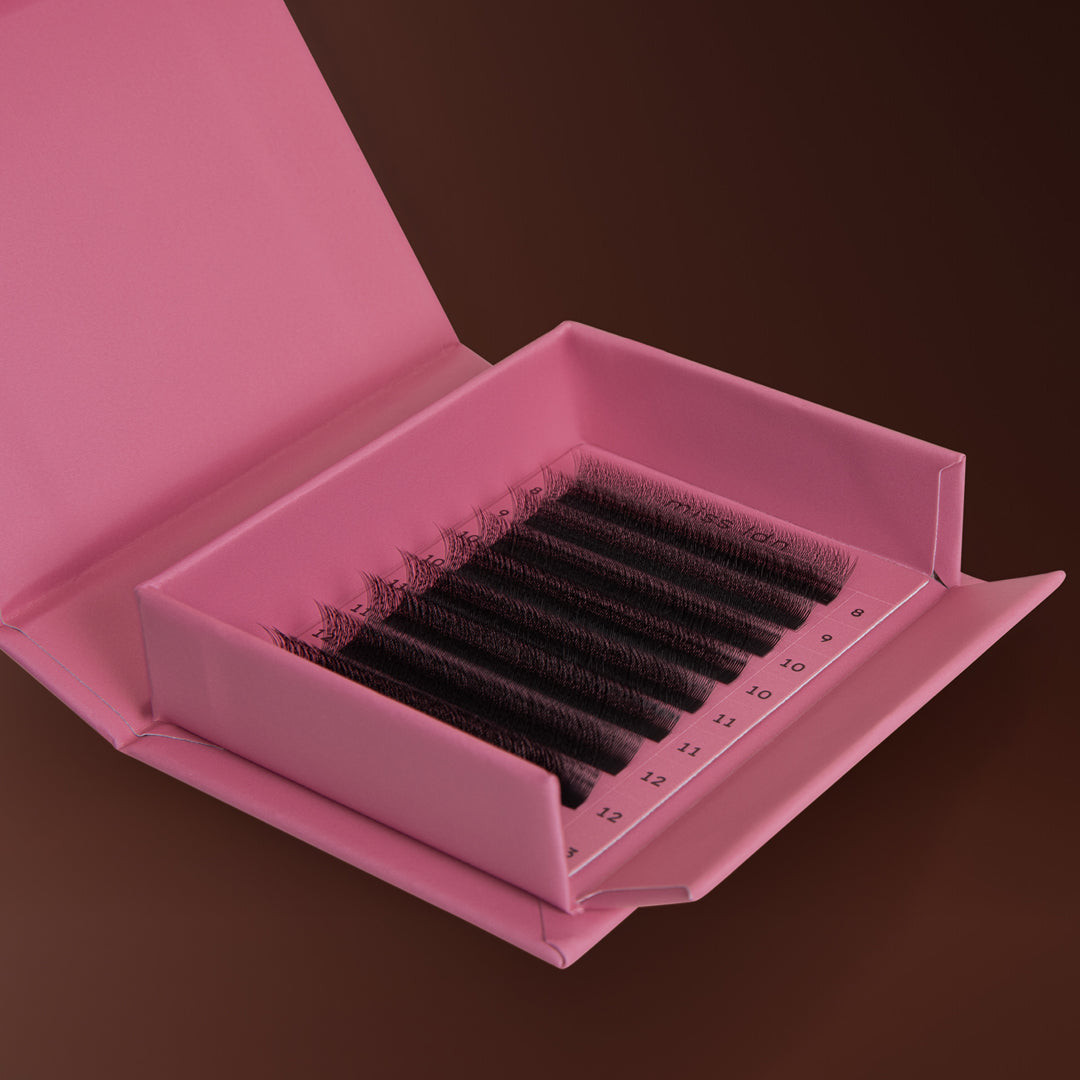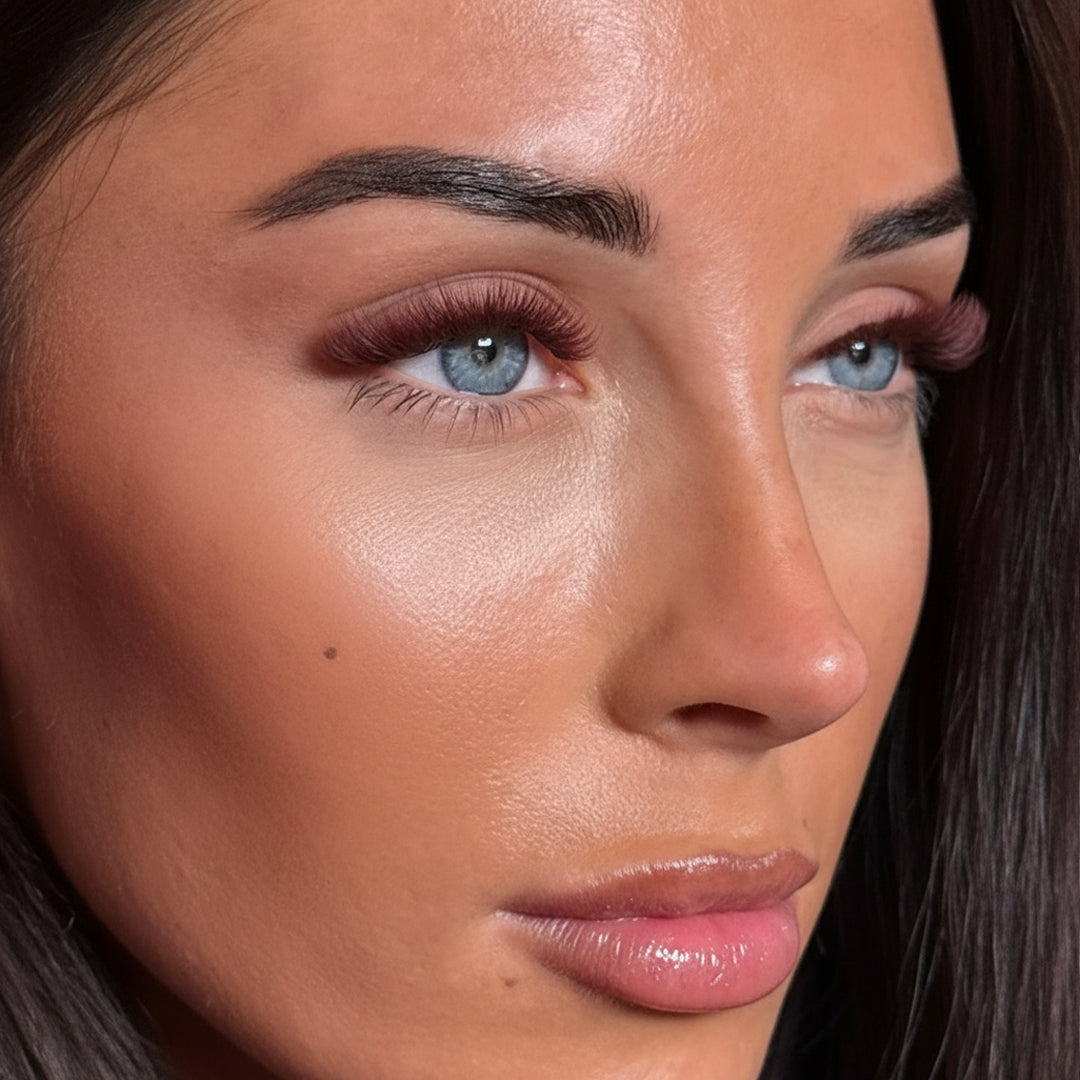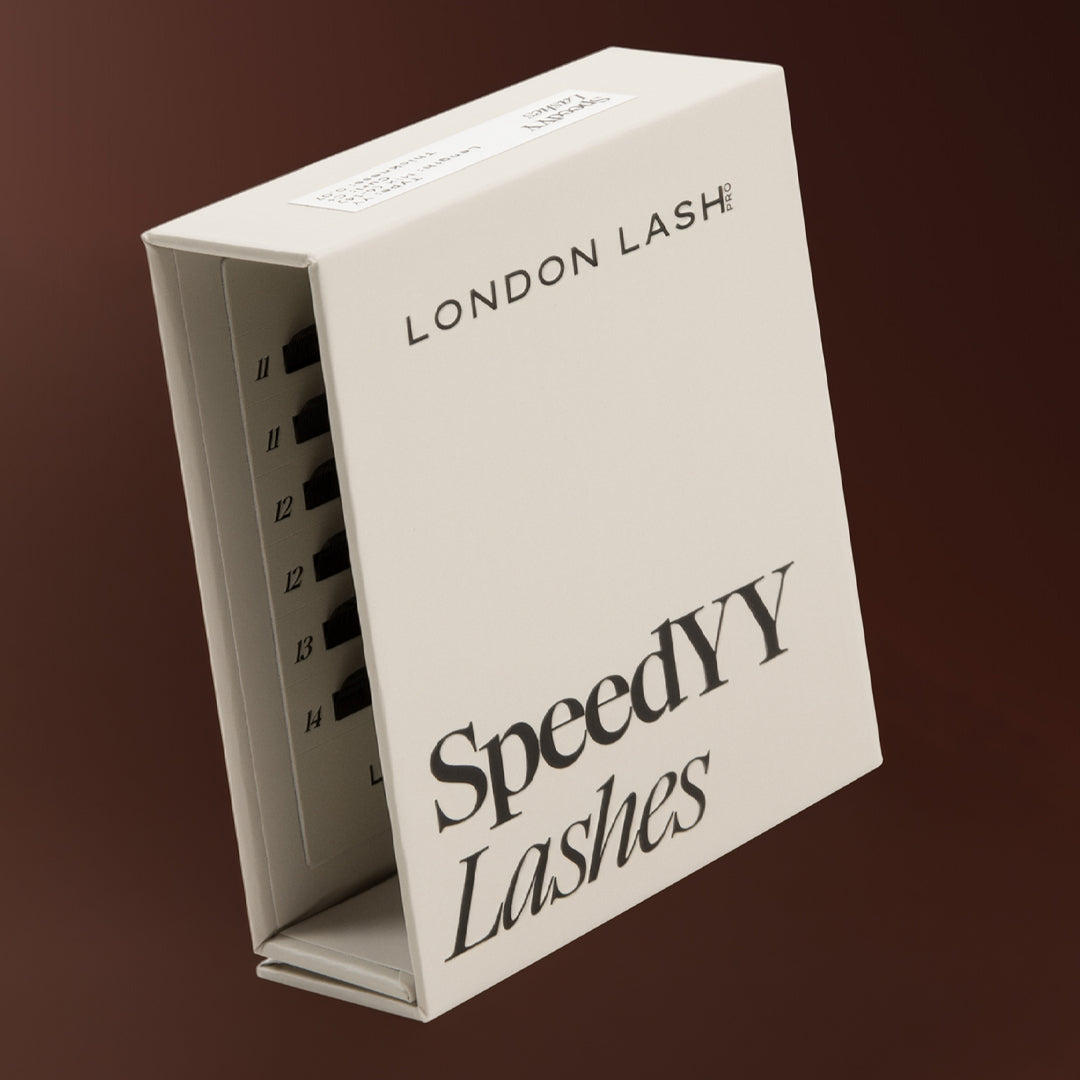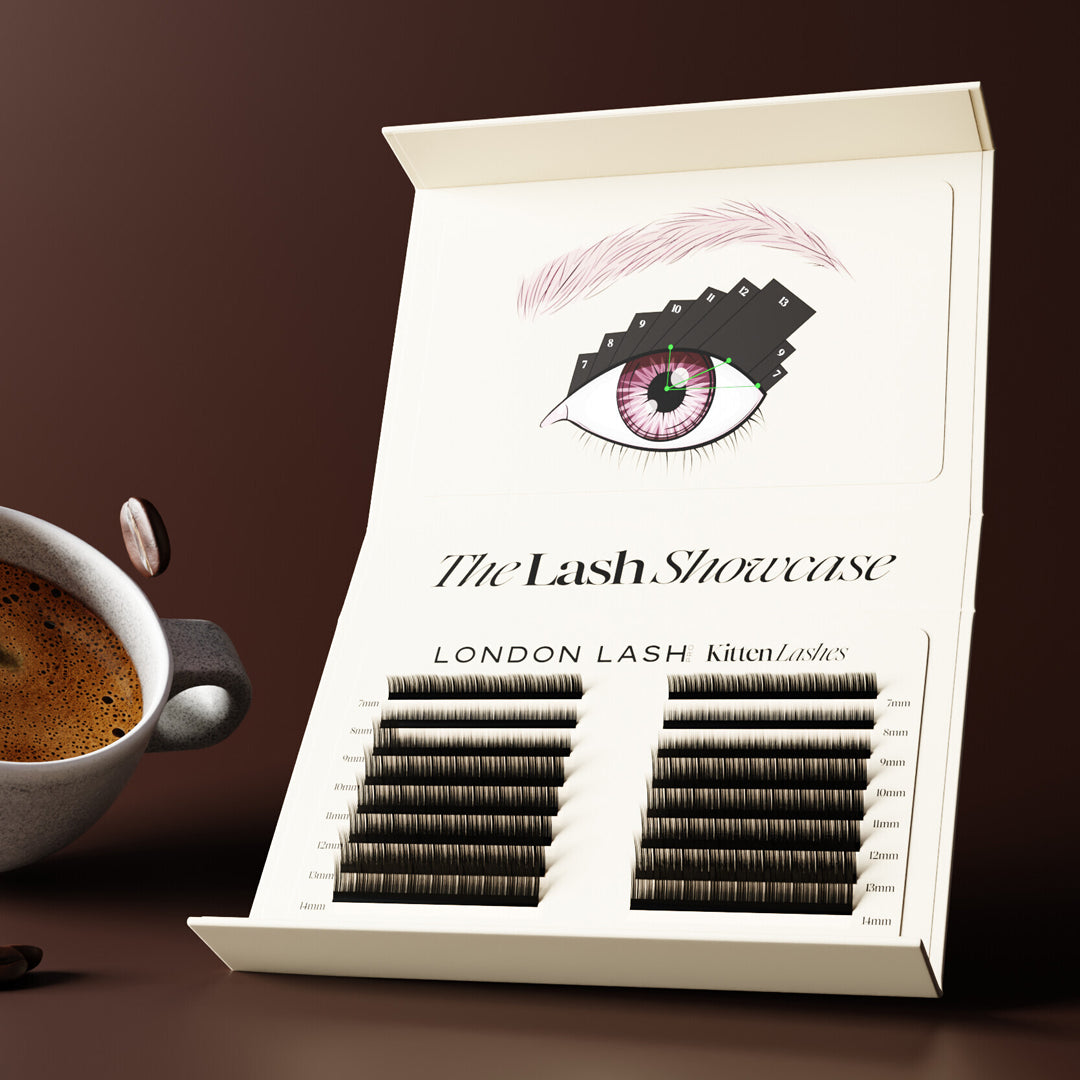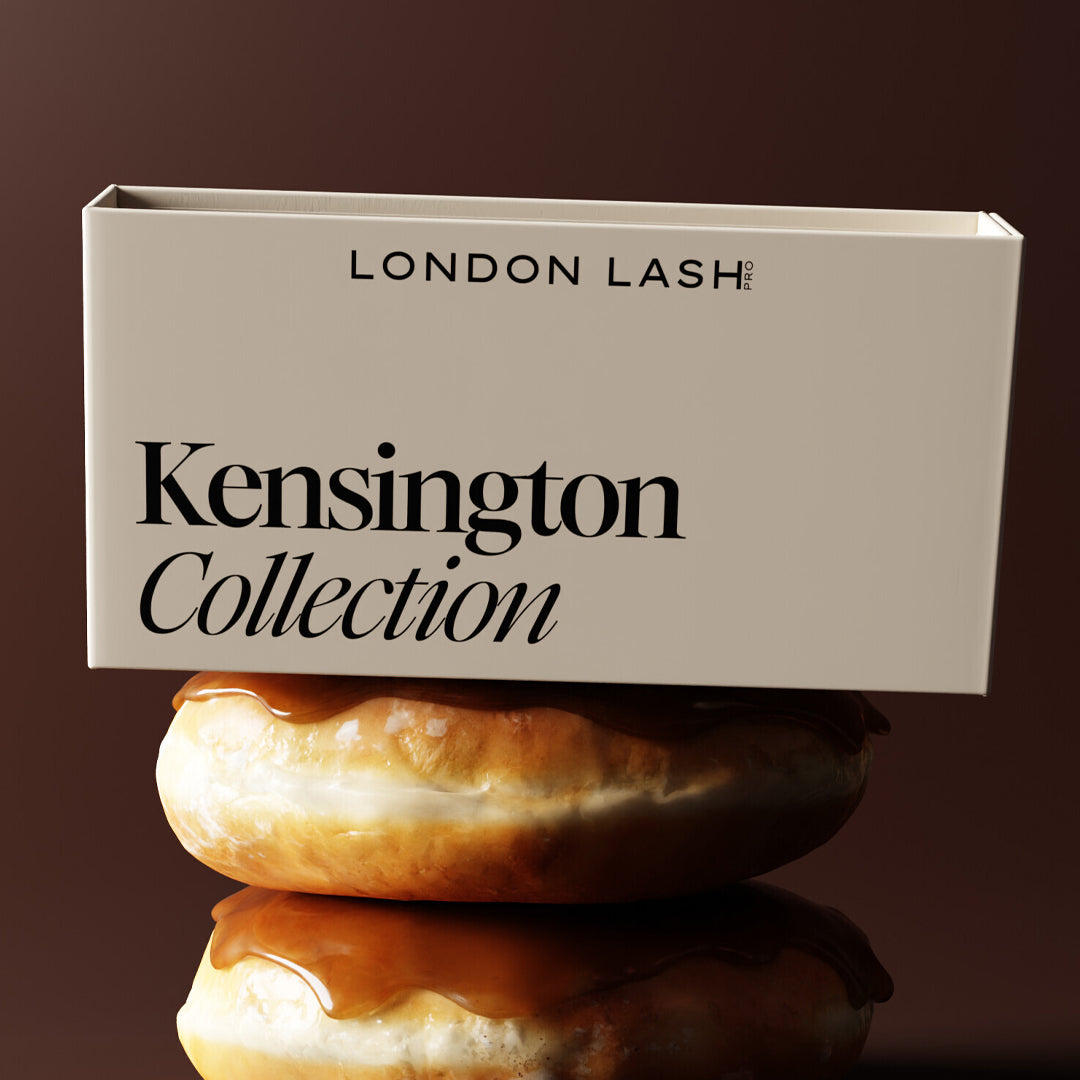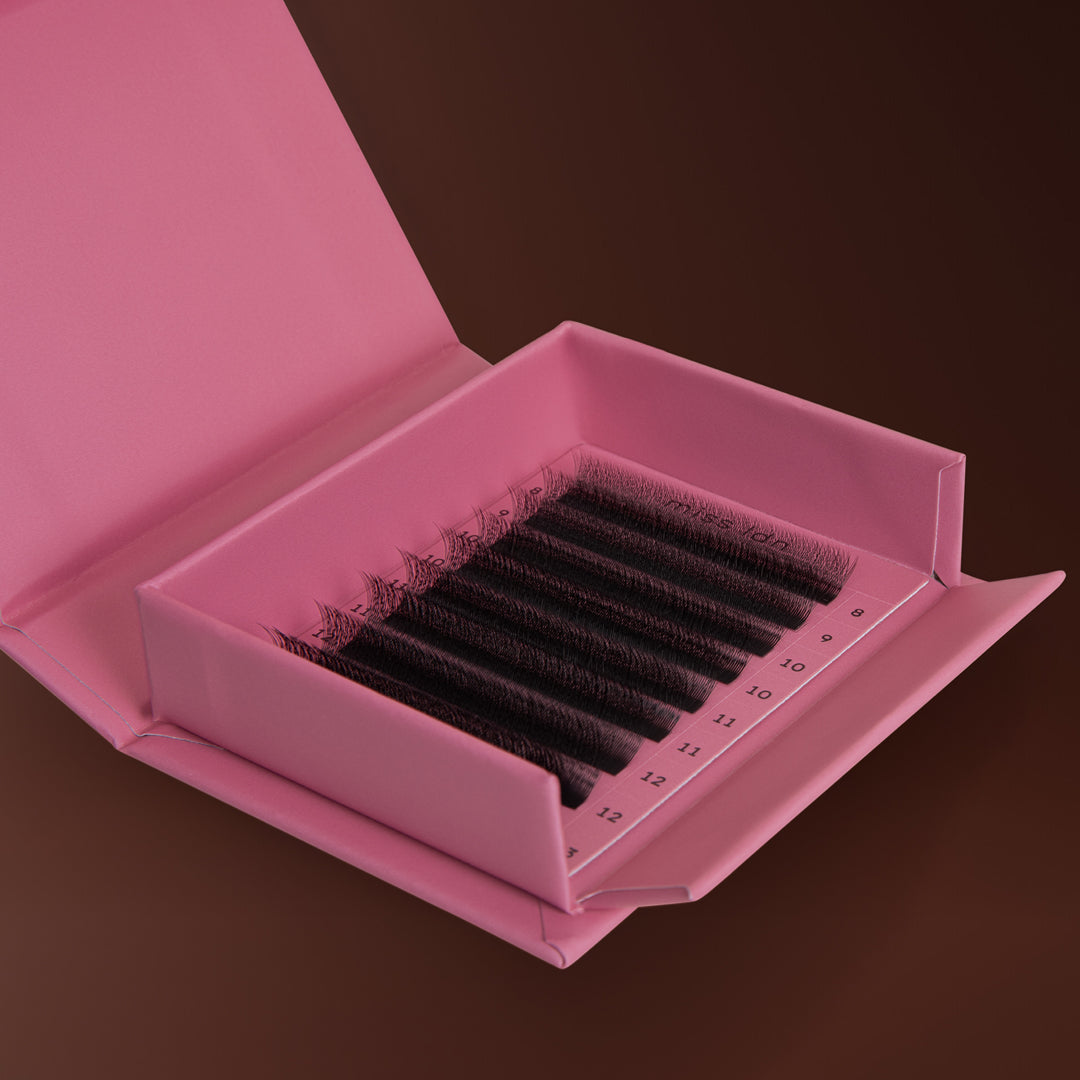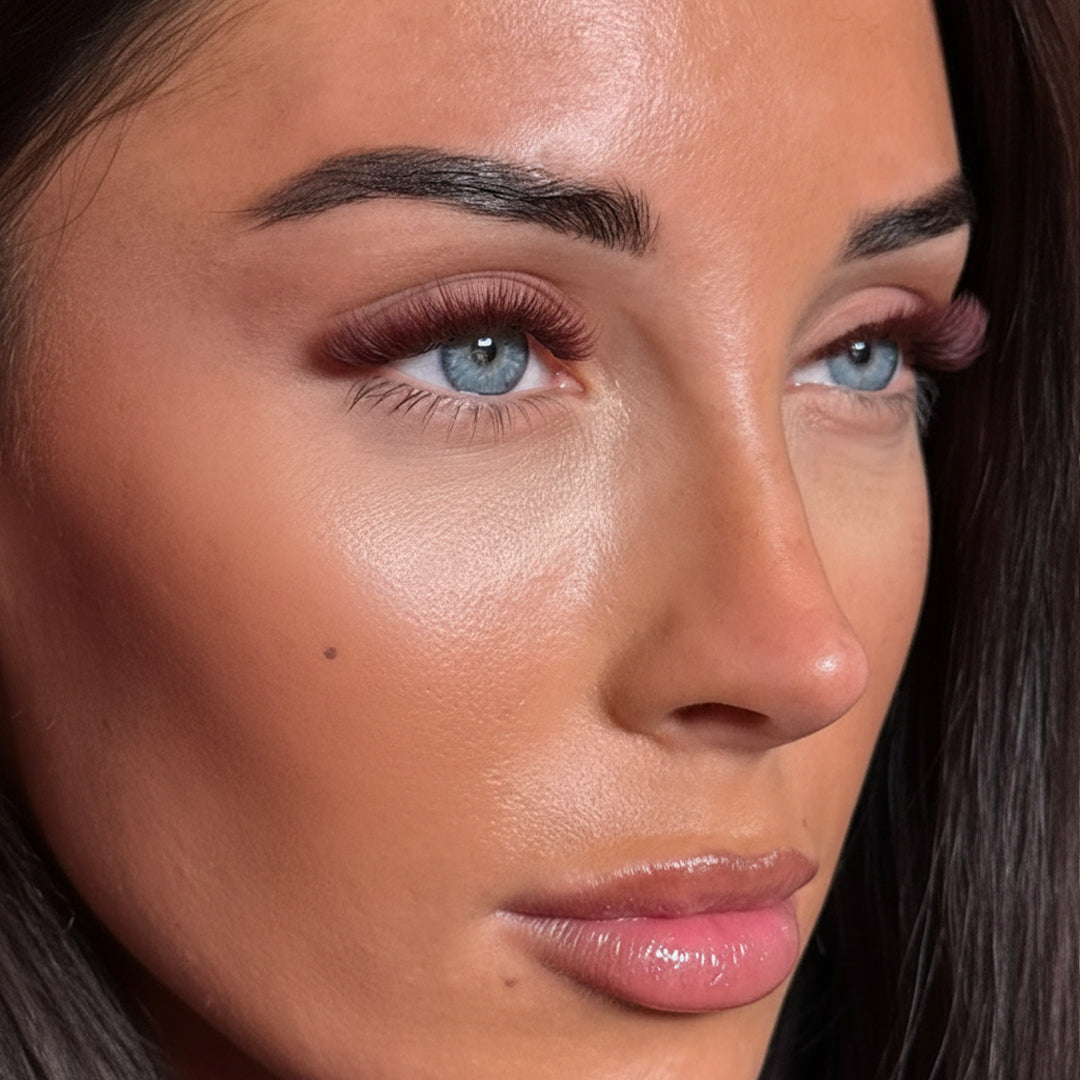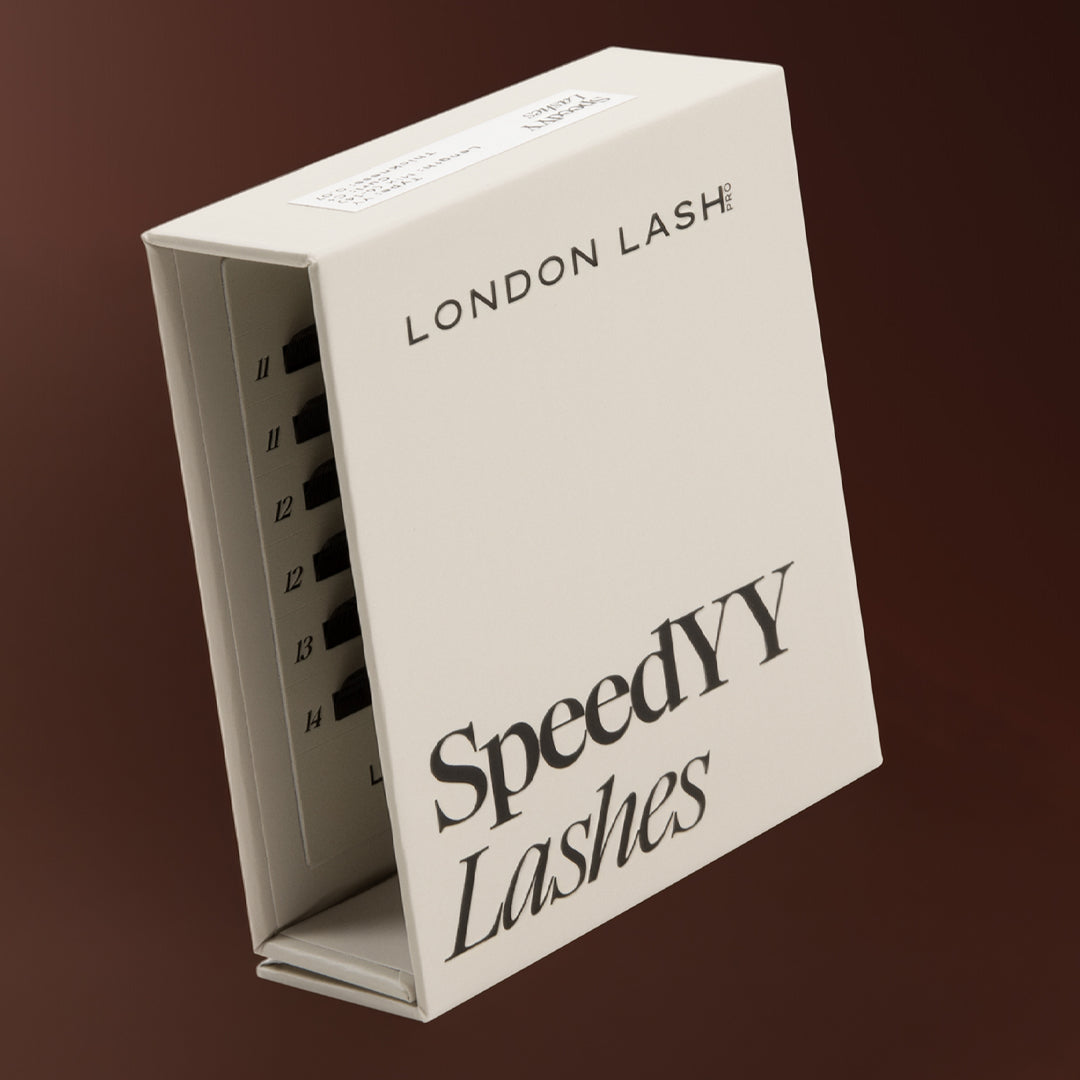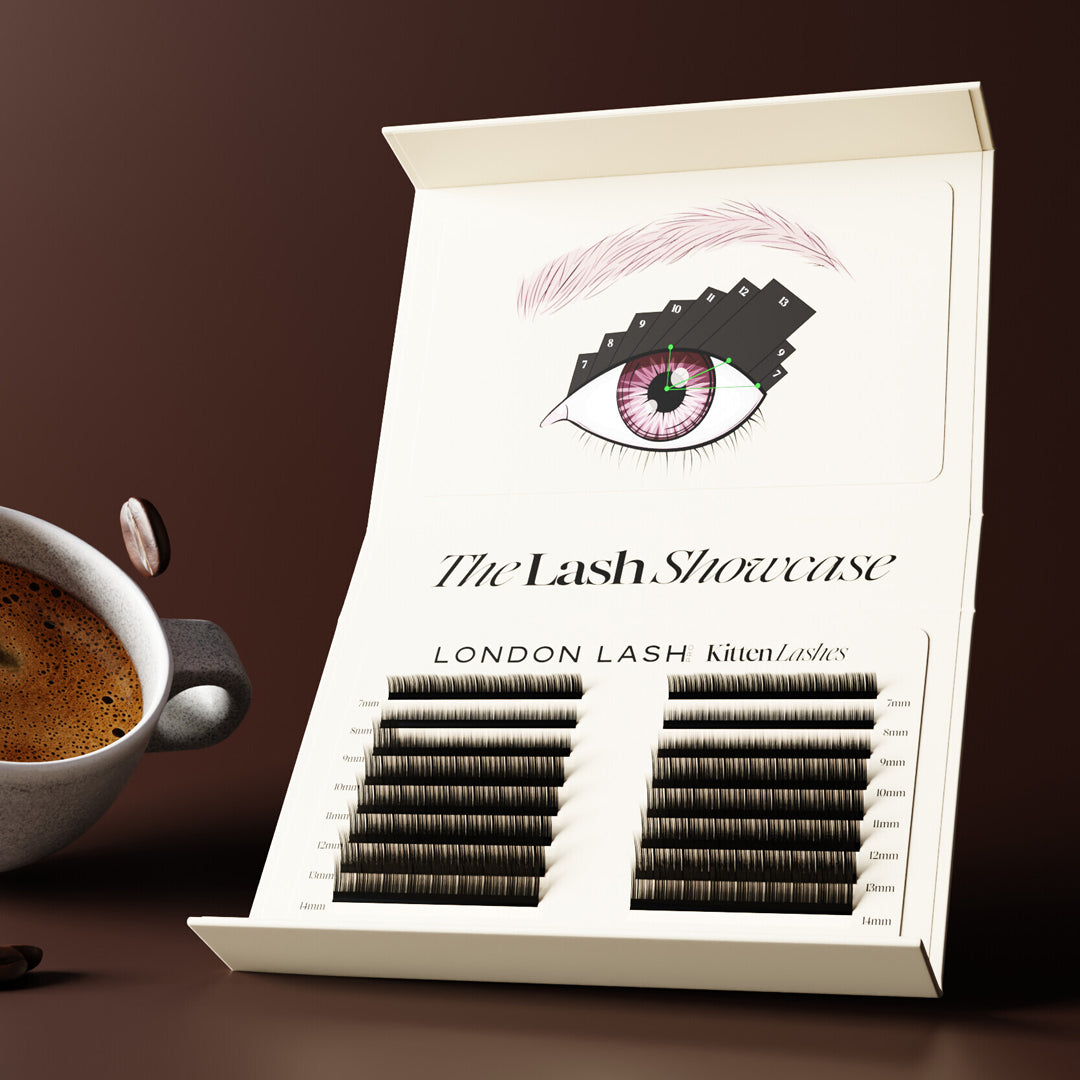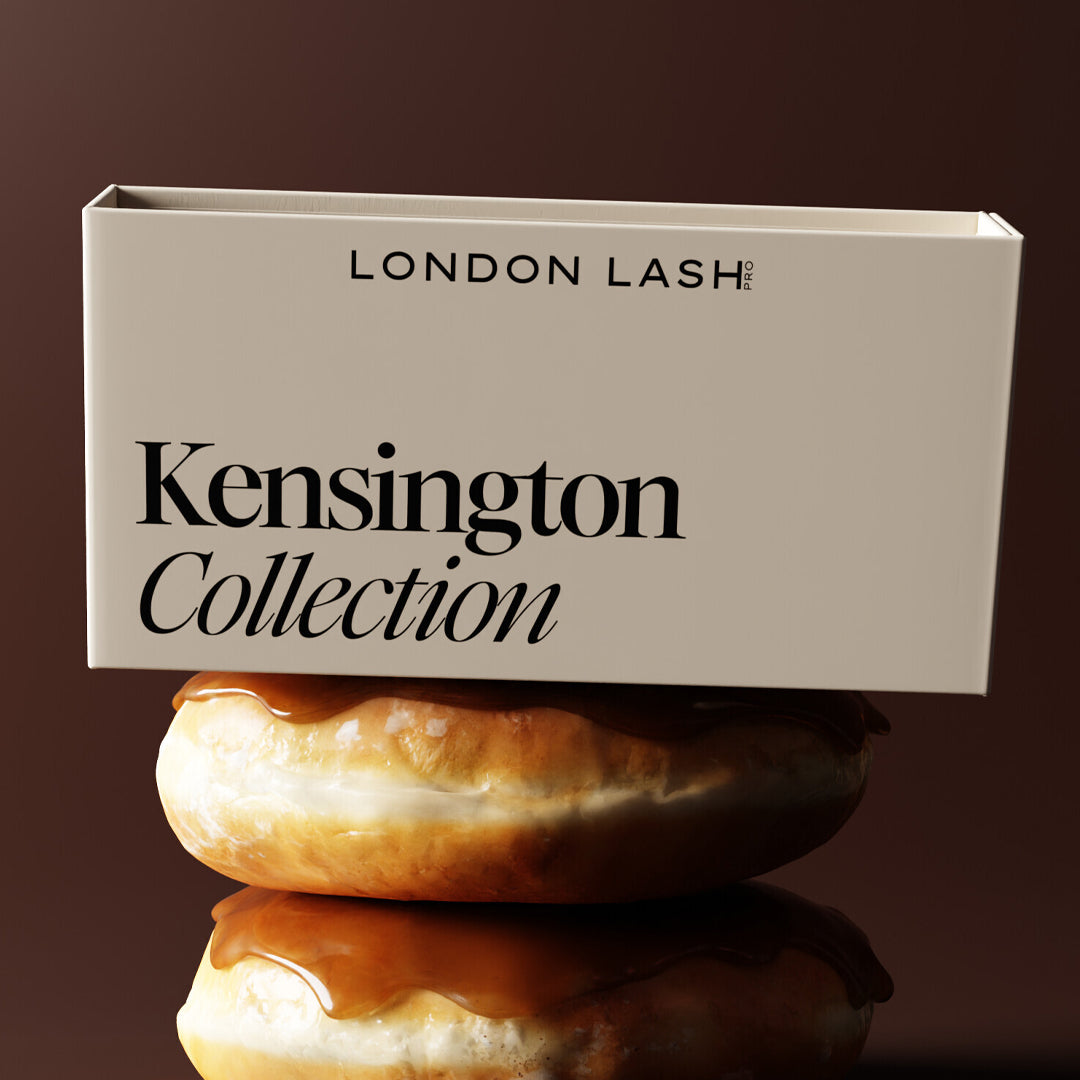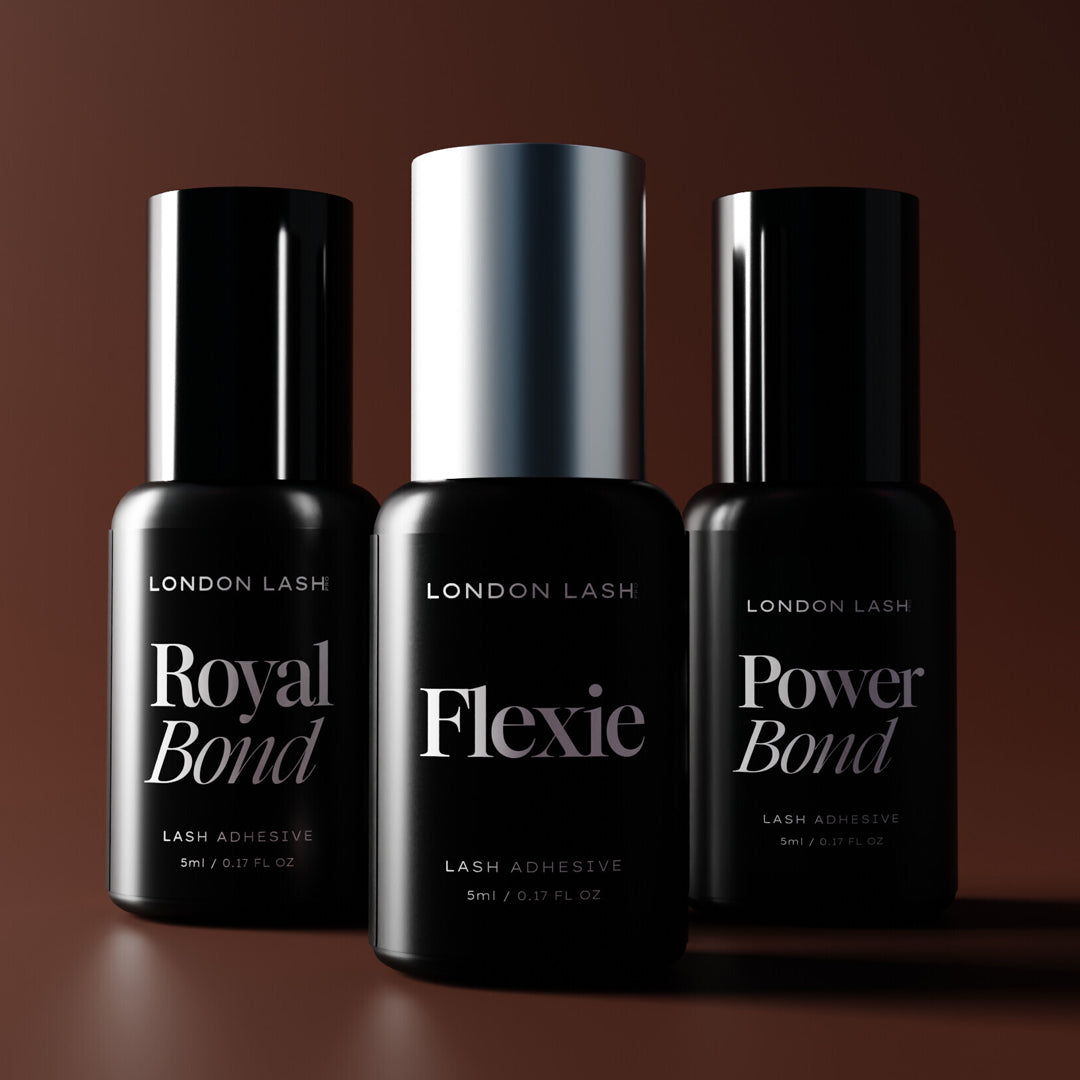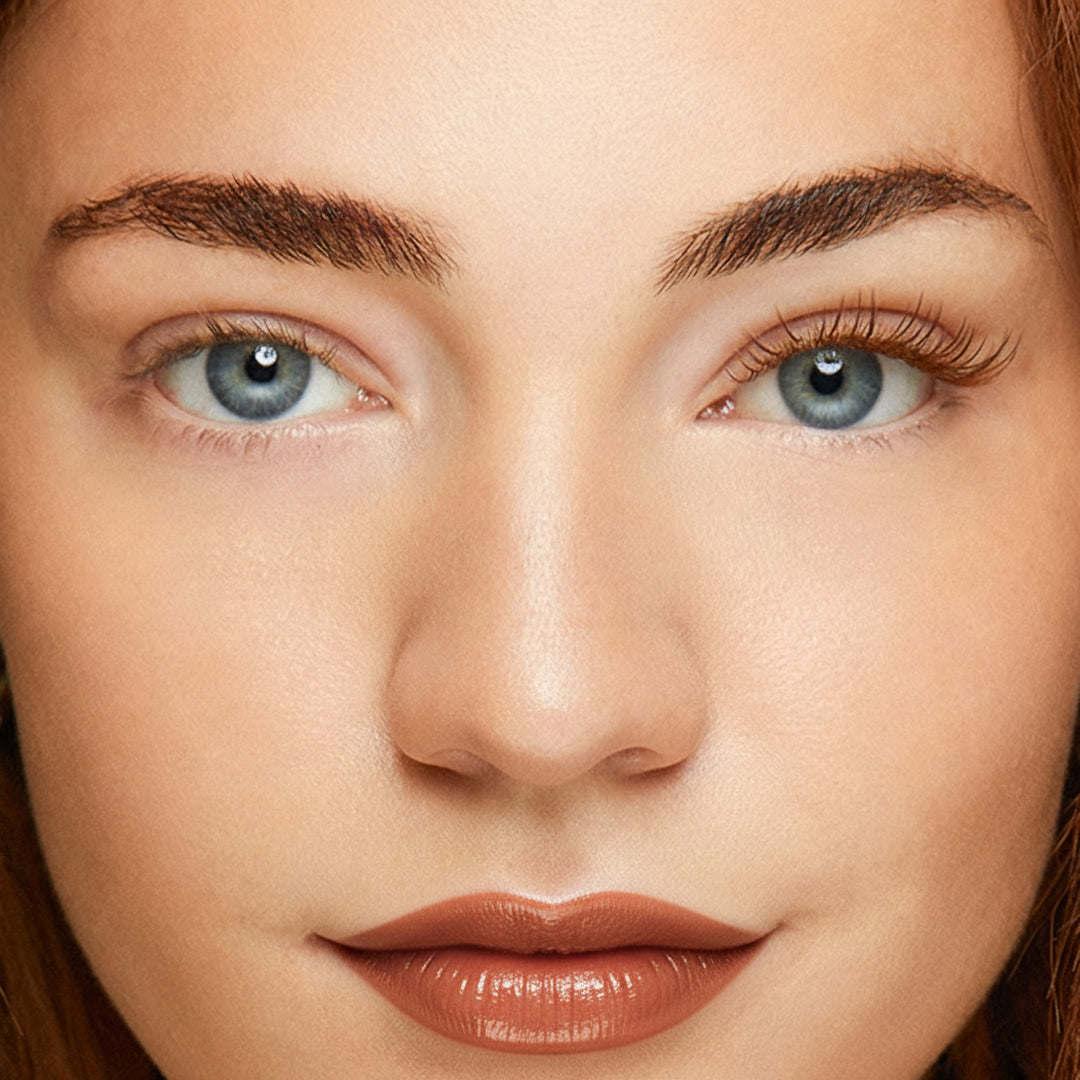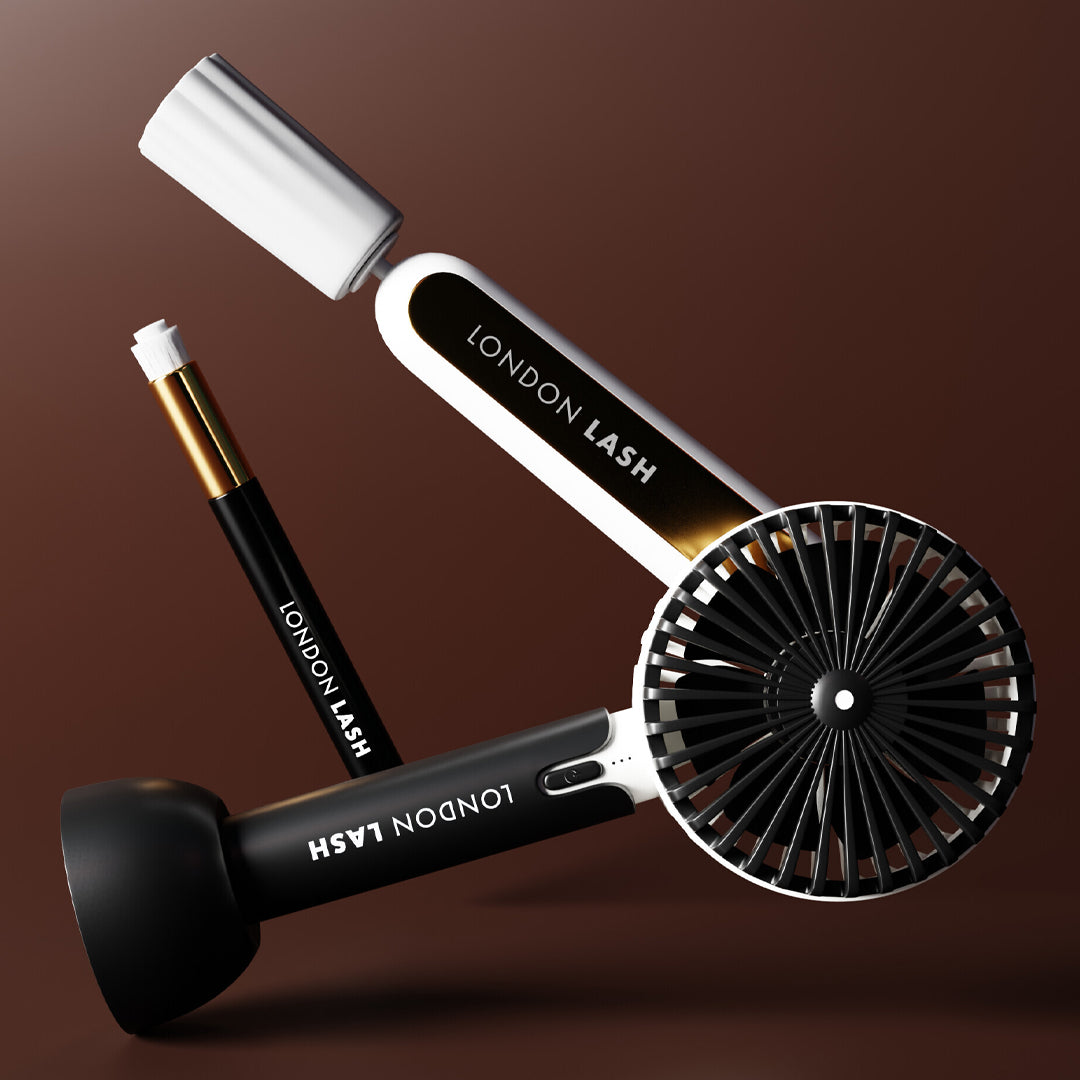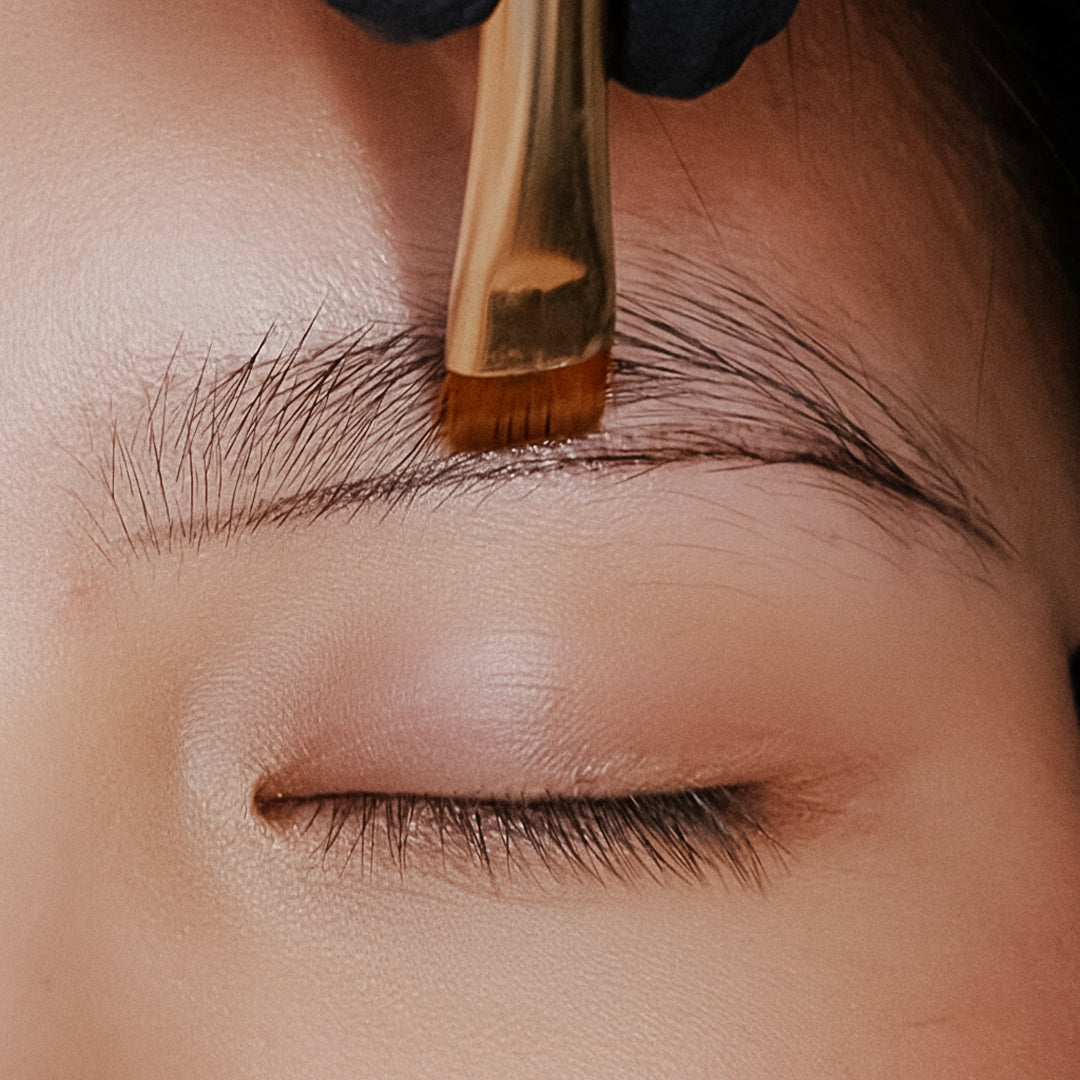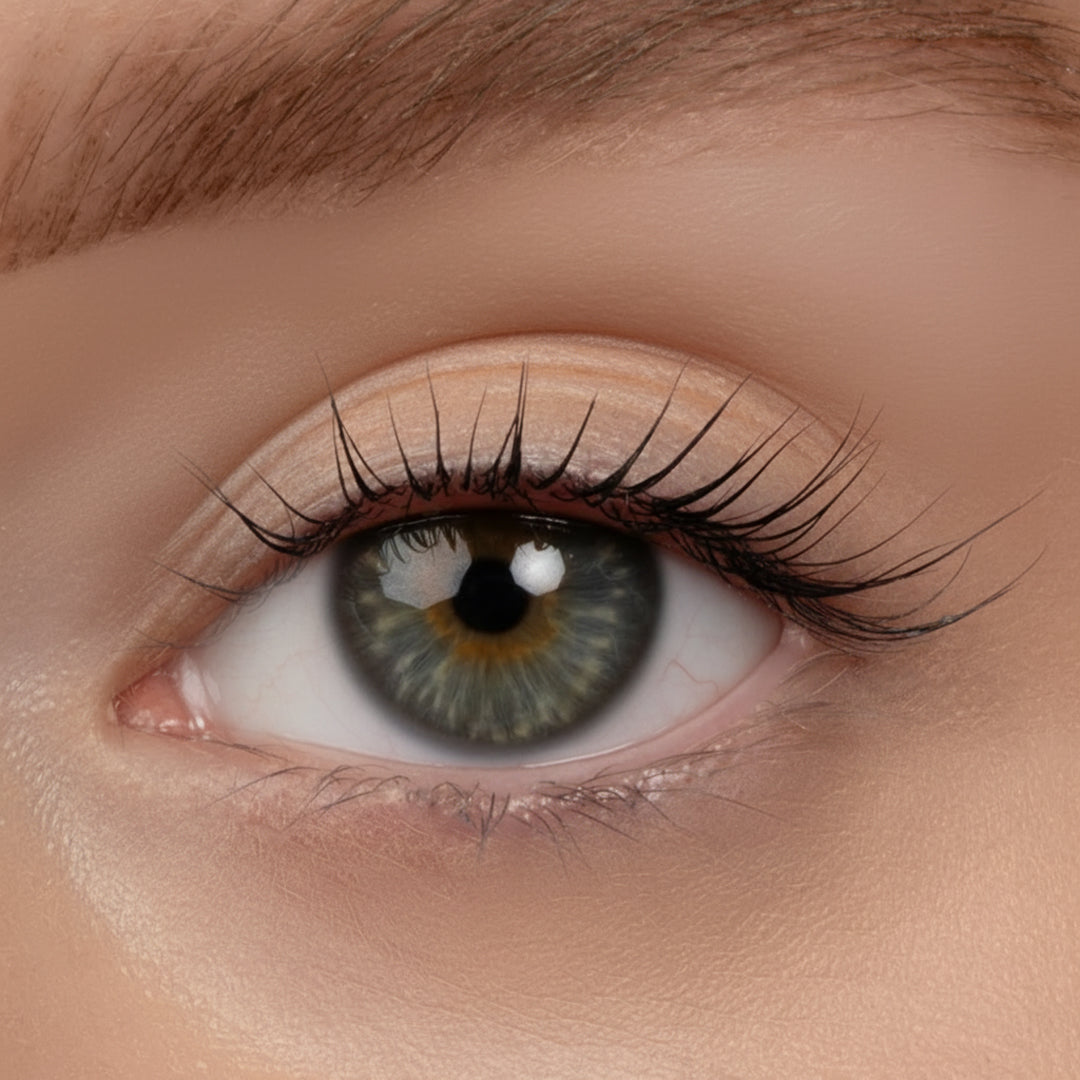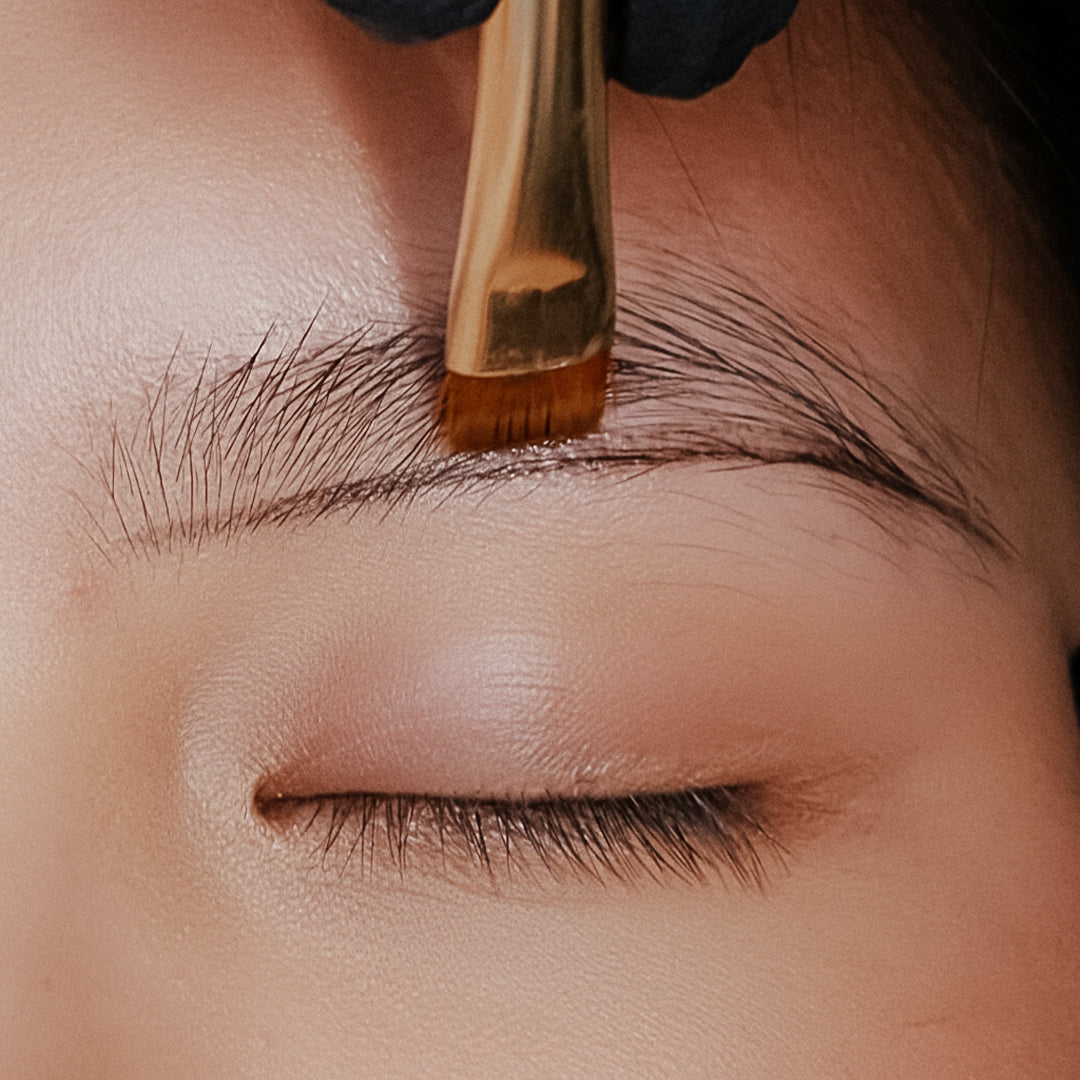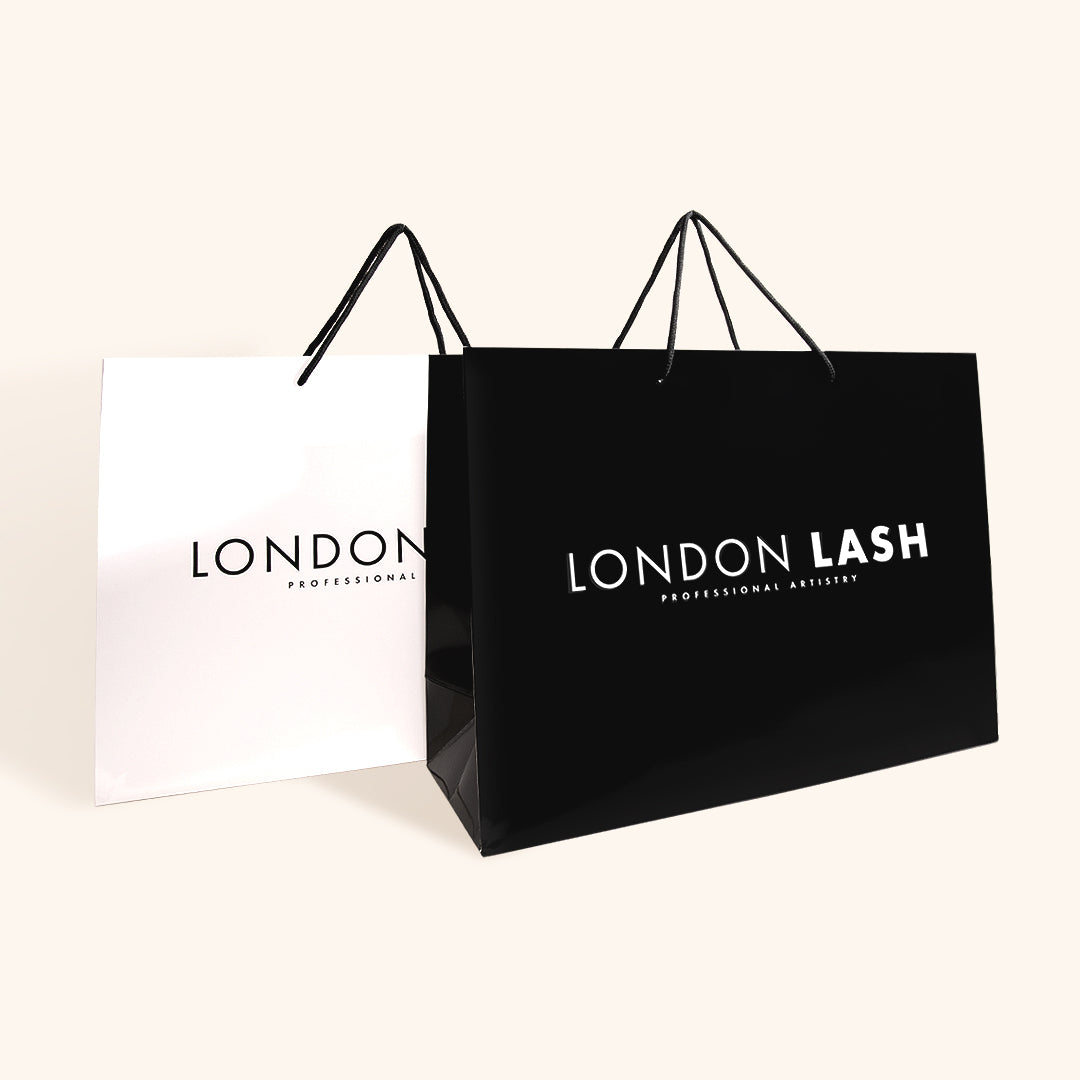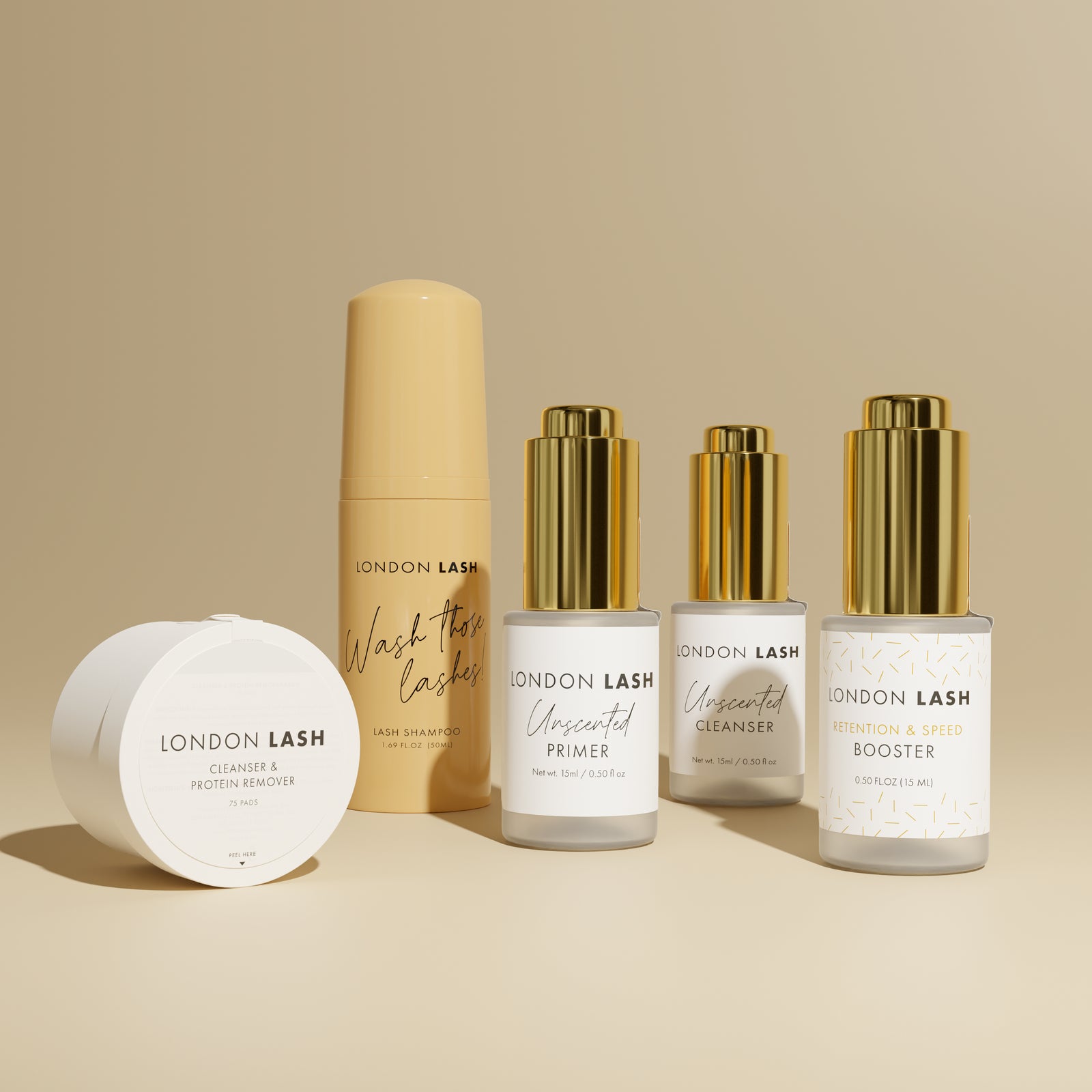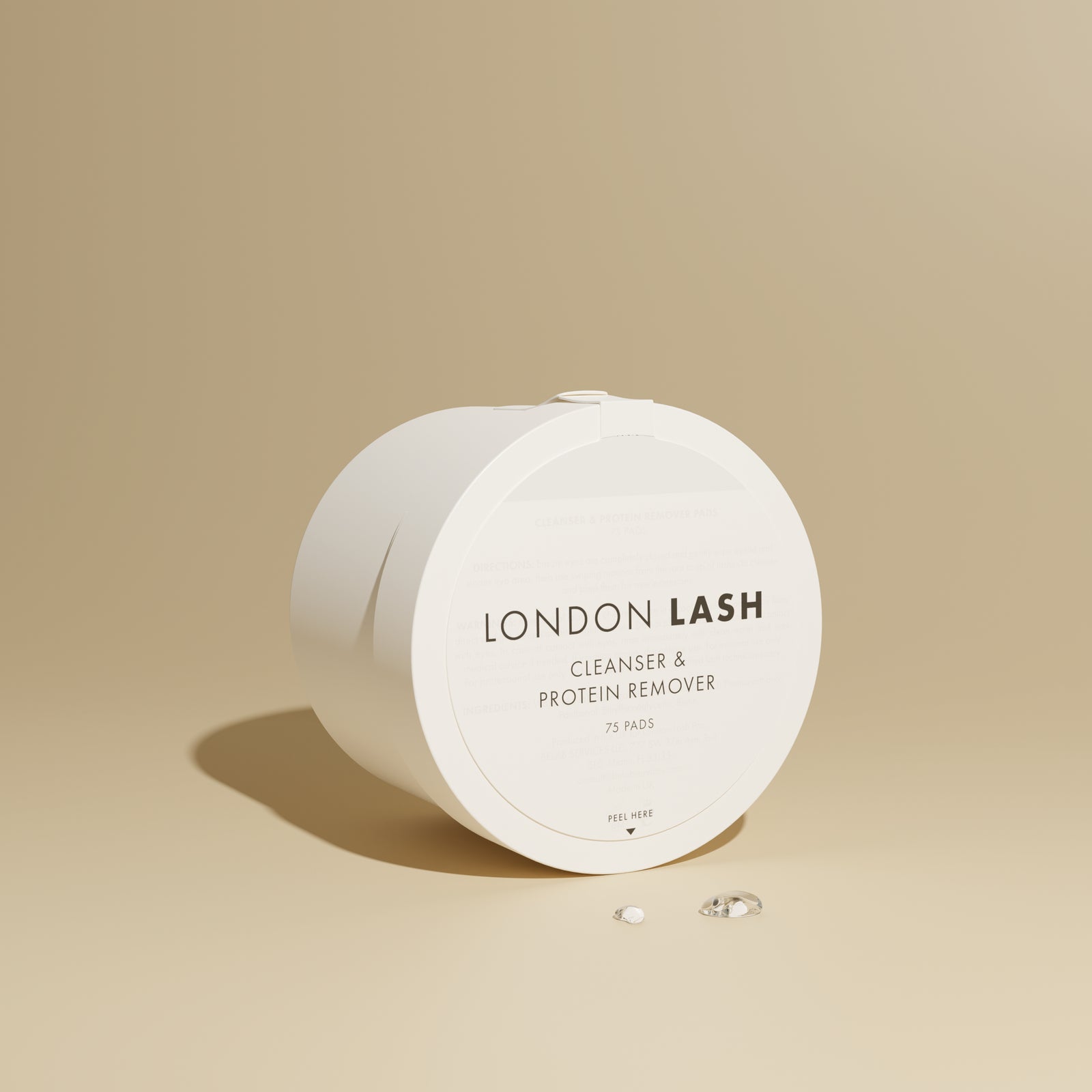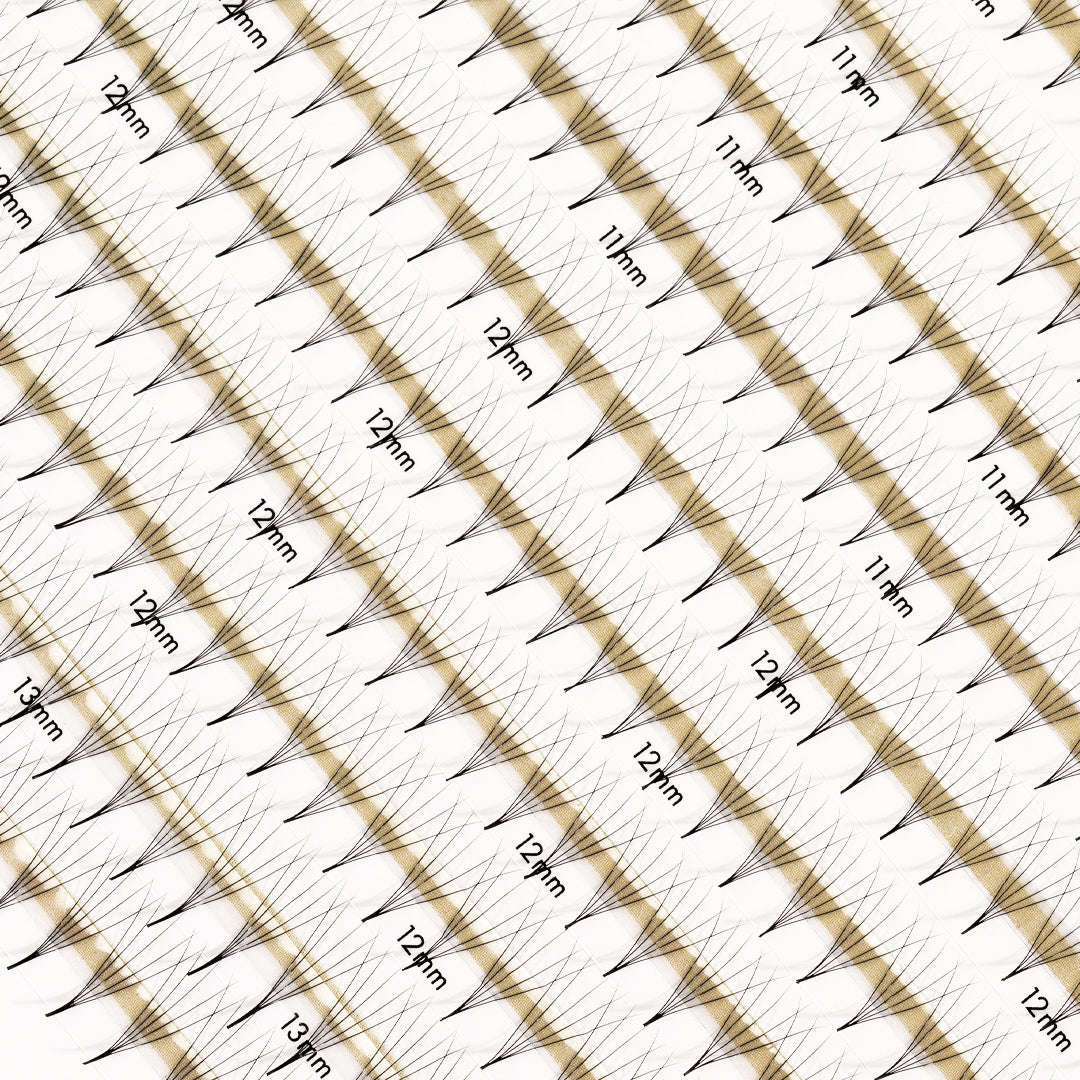Glues & Liquids
Eyelash Extensions
ACCESSORIES
So Henna
EYEBROWS
ONLINE TRAINING
Save up to 70% Off
An Infill or Full Lash Extensions Set? Guide for Returning Clients
August 02, 2023 6 min read

Does Your Client Need an Infill or a New Eyelash Set?
As a Lash Technician you will meet plenty of clients that then turn into regulars, that’s a great thing. Knowing that you have a consistent clientele that is happy with your lash extensions is not only rewarding but fulfilling too. Having regular clients does not mean only offering lash extensions or lash extension removals though, you can offer a service that simply restores your client’s lash set to its fullest and fluffiest look. An infill. But how do you know if your client needs an infill session or if they’re lashes are simply in need of a new and full extension session? Let’s dive into today’s blog post.
For information on how to turn your brand new clients into regular customers, read our insightful blog post here.
What is an Infill Lash Procedure?
A lash extension infill session is simply a treatment which brings your client’s eyelash extensions back to life, so to speak. We advise clients with a brand new eyelash set to return to their Lash Artists every 3 - 4 weeks to fill out any gaps in their eyelashes which may have fallen and shed naturally. Lash shedding is a completely natural process and depending on your client’s natural lash growth cycle some of their natural lashes will shed in between those 3 - 4 weeks taking the lash extensions along with them. Learn all about Lash Shedding in this blog post here.
When your client returns for their infill session you can assess their eyelash extensions and health of their natural eyelashes. You will also be able to tell if the client has followed a good aftercare treatment, such as using Lash Shampoo. Then, you will decide how long the treatment of filling out any gaps will take. The idea is that you apply eyelash extensions only on the natural lashes that are just growing in or have had a lash extension fallen off due to other factors. You are looking for the client to leave the salon similar, if not the same way they did in their previous treatment.

What Lashes To Use
This will be down to preference. As infill sessions are shorter than a full lash treatment, which could take several hours, with an infill you are looking to fill out the gaps. As a Lash Tech you will recognise lash curls and lash extensions in general, but it is always worth noting down in a planner or the client’s infill appointment which products you used so that your work can be consistent when you perform an infill.
For example, your client may have weaker natural lashes, you have used Ellipse Flat Lashes, Flexie Bond Lash Glue and Superbonder Sealant to create a flexible and strong bond. But, sometimes that isn’t possible. You may have ran out of your favourite lashes that you have used for a particular client or your client wants more density, so having a tray of Mayfair Premade Volume Fans is always super handy. Premade Fans will save you a lot of time especially during infill sessions as you won’t have to spend time hand crafting lash fans or placing individual eyelash extensions one by one. Furthermore, Premade Fans are perfect in a session where your client may be running a little late due to any reason, as you can save time on crafting fans, Premade Fans are the ideal solution for any Lash Technician who is struggling for time.
For a client who wants a little more texture to change up their lashes during an infill then a tray of Easy Fanning Lashes will achieve a subtle wispy lash effect but still fill out any gaps they have, just make sure you map correctly and cohesively. Mixing Premade Fan extensions with a client’s original Classic lash extensions is a great way to create a set of hybrid lashes which can change the client’s look but still keep it looking natural.
How to Perform an Infill Treatment
So, talking of mapping, how should you perform a lash extension infill? If you are all set and you know which lashes you are using for your infill then it’s time to clean your client’s lashes. Performing a Pretreatment should be done as normal. You should do your 5-Step Pretreatment but simply be a little more careful as you don’t want to pull out any existing lash extensions. When using Protein Removing Pads be careful around the preexisting glue bonds, but still use them on the skin to remove any dirt or makeup. You can always tape back any extended lashes so that the bare natural lashes pop out easier and you can get to them thoroughly.
Once you have finished your Pretreatment you are ready to perform your infill procedure. Map accordingly to the shape and lengths you need to use to return your client’s lash set to its previous glory. If your client wants something a touch different, such as more density or texture in their eyelashes, then map cohesively with what is already there. You can always remove lash extensions using the ‘banana peel’ method but be gentle. Remember that as you are simply adding to any gaps, this session should not last as long as a full lash extension set and you are charging less for this treatment. Make sure you can do as much as you are charging for and do not over promise on the results as you are simply performing this treatment as a restorative procedure.
What If The Client Comes In With Almost No Lash Extensions Left?
Leading on from the last point, an infill appointment is not a ‘cheaper’ version of a full lash extensions treatment. If your client books in for an infill but arrives wanting a completely new lash look with full lash extension removal and then a brand new set of lashes, it is simply impossible to perform in the time of an infill session.
Furthermore, if you notice your client comes in with a handful of eyelash extensions left on their eyes but called up to book an infill then you must consult your client that it would be very difficult to restore their eyelash extensions to the full set in this timeframe. Yes, in this situation extensions such as Premade Fans would be helpful and quick, but it isn’t a solution to suit every situation and you must be firm in explaining that it would be best if your client books in for a new set of lash extensions. Typically we suggest if your client comes in 40% - 50% of their lash extensions left then an infill is doable, anything less than 40% of their eyelash extensions left would require a full set treatment.

There may be times when clients will suggest that the retention was poor and the reason why most of the lash extensions fell out is because of your work, therefore you should fix it. Examining the client’s lashes may reveal a few clues. Check if there were any ‘stickies’ and if there was any lash shedding due to ‘stickies’ which happened due to your application. You can also check if the gaps in the lashes are on longer eyelashes or if baby lashes are popping through. If the client has more gaps with baby lashes then it could be that their natural lashes were ready to shed and they took the extensions with them, this is not due to your application. Ask your client if they followed a good aftercare plan, did they clean their lashes daily, did they pull or pluck away on any lash extensions for any reason? If the reasoning for the poor retention was due to any issues in your performance, examine what you may have done.
As mentioned above, making sure you note the products you use on your clients may give you more information on what worked and what didn’t. For example, if you didn’t do a thorough Pretreatment the previous session or if you used lash extensions which were too heavy for a client with weaker natural lashes, any clues as to what happened with poor retention will help you during an infill to fix those issues and prolong lash retention.
Summary
It is always important to consult with your clients and not over promise. While some of these clients are regulars, creating bonds and friendships is important, but educating them on things such as lash shedding and correct lash aftercare will help them understand what to expect during an infill session. Working with your clients is paramount, so as to understand if any retention issues were due to them or your work and how you can go about to accommodate the particular client and improve any issues for their lash extensions.
Check out these featured products
Subscribe
Sign up to get the latest on sales, new releases and more …

